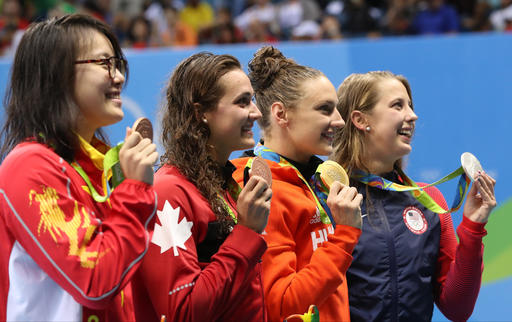As the Rio Olympics wind down, many observers have noticed a shift in the way the Games have been received in China.
While the public previously seemed to place great emphasis on the country’s ranking in the medal table, that has all gone by the wayside in Brazil. Instead, fans are paying a lot more attention to the individual stories of the athletes themselves.
CCTV’s Han Peng reports.

The outspoken swimmer Fu Yuanhui became a social media hit in China after a one-minute interview on the second day of Rio Olympics. For her, winning gold for her country doesn’t seem so important.
“I’ve exhausted the primordial power. This is my best performance ever, and I have no further expectation for finals,” said Yuanhui. “My goal at the Rio Olympics is not to win medals, but to improve my own performance, because I believe improving myself is the most important thing,” she added.
In the final, she won a bronze medal, and huge public applause for her attitude toward the medal.
This emphasis on an athlete’s individuality would have been quite controversial, if not unacceptable in China, just a few years ago.
At previous Olympics, Chinese media outlets would put medals tables on their front pages, and the public believed a higher ranking meant stronger national power. But some analysts say the reason behind the decline in people’s gold mania is not just a result of stronger confidence in their nation.
At the 2012 London Olympics, China’s first ever world champion hurdler, Liu Xiang, crashed into the first hurdle.
He limped to the final line and kissed the last hurdle, winning sympathy around the world, but criticism in China for losing a medal he should have won.
China still maintains a whole-nation sports system, which cost over 40 billion yuan, or 6 billion U.S. dollars last year.
Most funding comes from the government, which covers the spending for athletes’ training, competition and food and accommodation.
Now, a rising individual emphasis, under a state-funded system, Chinese athletes and the public are growing together to live up to the Olympic spirit.
 CGTN America
CGTN America Winner Hungary’s Katinka Hosszu, second right, second place United States’ Kathleen Baker, right, and joint third place China’s Fu Yuanhui, left, and Canada’s Kylie Masse during the medal ceremony after the final of the the women’s 100-meter backstroke at the swimming competitions at the 2016 Summer Olympics, Monday, Aug. 8, 2016, in Rio de Janeiro, Brazil. (AP Photo/Lee Jin-man)
Winner Hungary’s Katinka Hosszu, second right, second place United States’ Kathleen Baker, right, and joint third place China’s Fu Yuanhui, left, and Canada’s Kylie Masse during the medal ceremony after the final of the the women’s 100-meter backstroke at the swimming competitions at the 2016 Summer Olympics, Monday, Aug. 8, 2016, in Rio de Janeiro, Brazil. (AP Photo/Lee Jin-man)
